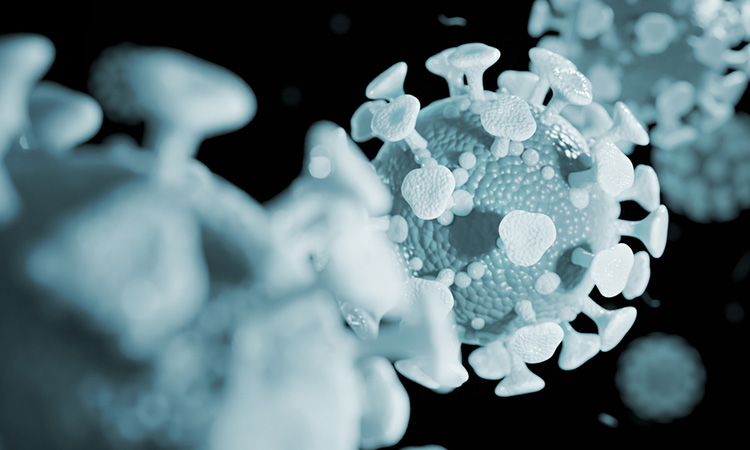Biomarker in blood could determine severity of COVID-19
Posted: 27 January 2021 | Victoria Rees (Drug Target Review) | No comments yet
A study has shown that patients with severe COVID-19 have significantly elevated levels of M-MDSCs in their blood compared with healthy individuals.


New research has demonstrated that individual variations in how the immune system responds to SARS-CoV-2 appear to impact the severity of disease. Researchers at Karolinska Institutet, Sweden, have shown that patients with severe COVID-19 have significantly elevated levels of a certain type of immune cells in their blood, called myeloid-derived suppressor cells. The team say the study may bring an increased understanding of how early immune responses impact disease severity.
According to the researchers, most individuals with COVID-19 develop mild to moderate symptoms and recover without needing hospital treatment. In severe cases, however, COVID-19 can lead to respiratory failure or even death. It is not yet known why the severity of disease varies so much between patients.
The team studied one type of immune cell called monocytic myeloid-derived suppressor cells (M-MDSC) and their potential role in COVID-19. These cells have been shown to increase in other inflammatory conditions and their suppressive effect on T-cell activity has been established. The role of M-MDSC in respiratory infections, however, is largely unknown.
The study consisted of 147 patients with mild to fatal COVID-19 who were sampled repeatedly from blood and the respiratory tract. These were then compared with patients with influenza and healthy individuals.
The results showed that patients with severe COVID-19 have significantly elevated levels of M-MDSCs in their blood compared with milder cases and healthy individuals. COVID-19 patients had fewer T cells in the blood than healthy subjects and they showed signs of impaired function.
The analysis also showed that the levels of M-MDSCs early in the course of disease seemed to reflect subsequent disease severity.
“Our results help increase the understanding of what causes severe COVID-19 and is an important piece of the puzzle in understanding the connection between the early, innate immune system, which includes M-MDSC and the later adaptive immune system, which includes T cells. There is also a strong clinical connection, as you could potentially use the results to find new biomarkers for severe illness,” said Associate Professor Anna Smed Sorensen, the study’s last author. “The next step in our research is to further study the connection between different parts of the immune system, such as M-MDSC, T cells and antibodies.”
The findings were published in the Journal of Clinical Investigation.
Related topics
Biomarkers, Disease Research, Drug Targets, Immunology, T cells
Related conditions
Covid-19
Related organisations
Karolinska Institutet
Related people
Associate Professor Anna Smed Sorensen








